Modern ways of life, such too much screen time, erratic schedules, artificial light, and meal times that are impossible to predict, mess up our circadian rhythms. This can cause insomnia, daytime sleepiness, metabolic issues, and a number of other long-term health issues. It’s good that it’s easy to get your everyday routines to match your body’s natural clock. This article gives you useful tips on how to get your circadian rhythm back on track, enhance your sleep architecture, and do better during the day. It is based on decades of research in chronobiology. By following these five rules—managing light, sticking to a schedule, eating meals at the proper times, getting adequate exercise, and making your home as lovely as it can be—you’ll help hormones like melatonin and cortisol rise and fall naturally.
1. Managing Light: Know the Day–Night Signal and Why Light Is Important
Your brain’s clock center, the suprachiasmatic nucleus (SCN), uses light as its principal time signal. Seeing the sun in the morning decreases melatonin (the “sleep hormone”) and releases cortisol, which keeps you alert. On the other side, light at night, especially blue light from screens, causes melatonin take longer to start, which means you sleep later.
- Morning sunlight
obtain outside and obtain at least 20 minutes of natural light within an hour of waking up.
If you can’t get any sunlight, try a bright-light therapy box with 10,000 lux at a distance of 30 cm for 20 to 30 minutes.
Tip: Get some light and then take a short walk or stretch to raise your serotonin and dopamine levels. - Not as much blue light at night
You can stop blue light from coming in after sunset by turning on “night mode” on your gadgets or downloading apps like f.lux.
Glasses that fully block out blue light Putting them on 2 to 3 hours before bed can help melatonin start working up to an hour sooner.
If you can, use red or amber bulbs to keep the lighting in your home below 10 lux for the last two hours before bed.
2. Follow a schedule that you make: Choose what time you will go to bed and wake up.
The Power of Being Consistent: “Social jetlag” is what happens when you go to bed and wake up at different times. This throws off your body’s natural cycles and makes it more likely that you’ll gain weight, get depressed, or have cardiac problems.
- Setting up a schedule
Pick a time to get up that you can stick to every day of the week, even on the weekends.
Sleep for 7 to 9 hours every night. You should go to sleep at a set time depending on when you wake up. If you get up at 6:00 AM, you should go to bed by 10:00 PM.
Use sleep-tracking apps or gadgets to assess how well you’re following your plan. If it takes you a long time to fall asleep or you don’t sleep well, make changes.
If you work shifts or your hours change, make sure you always have a 4-hour “anchor” window at the same time every day.
Taking short naps (20 to 30 minutes) throughout your shifts will help you sleep more without making it difficult to sleep at night.
Light cues: Use blackout shades during the day and bright light at night to filter out light when you sleep.
3. Timed Nutrition: Get Your Metabolism in Sync
Eating at the Right Time and Your Circadian Health
The liver, pancreas, and adipose tissue all have peripheral clocks that inform them when to feed. Eating at odd times might mess up your body’s capacity to control glucose, lipids, and gut flora rhythms, which makes you more likely to get metabolic syndrome.
- Putting calories first
To get the most out of your insulin sensitivity, eat at least half of your daily calories before 3:00 PM.
Eat breakfast within two hours of getting up to make the morning stronger and keep hunger at bay at night.
For instance, just eating between 8 AM and 4 PM has been demonstrated to help with sleep and metabolic markers.
If you need to eat something after 7:00 PM, go for low-glycemic items like Greek yogurt or nuts. - Water and caffeine
Caffeine has a half-life of 5 to 6 hours, therefore you should only drink it before midday.
Drink a lot of water, but stop drinking it 1 to 2 hours before bed so you don’t have to go to the bathroom as often at night.
4. Work out: Plan your workouts so that you get the most out of them.
Exercising to keep track of time
Exercise affects both the central and peripheral clocks. Regular exercise helps you sleep better, deeper, and for shorter periods of time.
- When to Exercise
acting out in the morning or early afternoon (7 AM to 3 PM) will assist melatonin start acting faster and help you get more sleep.
Don’t work out hard for two to three hours before you go to sleep. Yoga or stretching, on the other hand, can help you relax. - Adding things to do for the mind and body
Doing yoga, tai chi, or meditation before bed can help you fall asleep faster by calming your sympathetic nervous system.
The 4-7-8 method of deep breathing activates the parasympathetic system, which slows down the heart rate and helps you get ready for bed.
5. What you do before sleeping and where you sleep
Making the Perfect Place to Sleep
- Most adults feel best when the temperature is between 60 and 67 °F (15 and 19 °C).
- It is entirely dark if there is less than 1 lux of light. To fix this, use blackout curtains, eye masks, and turn off LED lights.
- 40 dB or less of noise; if you need to, think about utilizing earplugs or white noise devices.
Before Bedtime Rituals
- Time to relax: Take an hour to do things that help you relax, like read or do some mild stretching.
- Stay away from news, business emails, and heated conversations that make you think, as they might elevate cortisol levels.
- Lavender’s scent has been proved to help people sleep better.
More Advice from Experts
- Know your chronotype: “larks” and “owls” have different optimal times to do things, so make sure your plans suit.
- Melatonin in tablet form (0.3–1 mg) Taking it 30 to 60 minutes before bed may assist in the short term. If you want to use it for a long period, talk to your doctor.
- Medical Evaluation: If you’ve had difficulties sleeping for more than three months and modifying your habits hasn’t helped, you should visit a doctor about sleep disorders such apnea, RLS, or circadian rhythm abnormalities.
Questions That People Ask All the Time
- What is a daily rhythm?
The SCN is a portion of the hypothalamus that governs the circadian rhythm, which is a cycle of bodily functions that lasts around 24 hours. It affects sleep, hormone release, body temperature, and metabolism. - How fast can I reset my circadian clock?
The simplest approach to achieve this is to make modest modifications every day, like 15 to 30 minutes. It could take three to seven days to become adjusted to a new schedule, depending on how big the change is. - Is it always dangerous to be in false light at night?
Not usually; red or amber illumination at a low level is less obtrusive. Before bed, stay away from LEDs that are bright, cold white, or blue-rich. - Do these strategies help you avoid jet lag?
You can decrease jet lag by altering your sleep and light exposure 1–2 days before you go, using light therapy when you get there, and taking melatonin at the correct times. - Does drinking alcohol assist or damage your body’s natural sleep-wake cycle?
At first, alcohol can make you drowsy, but it can also mess up your sleep architecture, diminish your REM sleep, and disrupt your circadian phase in a poor way. - How does my age affect my circadian rhythm?
As people age, their melatonin levels decrease, and their circadian rhythms often accelerate, resulting in earlier sleep and wake times. This means that what each person requires is different. - Are there apps that can help me get my sleep back on track?
Yes, applications like Re-Timer (for light treatment), SleepScore, and Oura can help you keep track of how much light you get, how well you sleep, and provide you personalized advise. - Can people who work shifts bring their circadian rhythm back to normal?
It’s hard to get back to normal fully, but anchor sleep, managing light, and taking naps at the right times can help a lot with being out of sync. - Do I need to turn off all of my electronics before bed?
Yes, that would be the greatest thing to do. If you can’t do that, you can wear glasses that block blue light, turn down the brightness of your screen, or use blue-light filters. - Will eating breakfast truly help me sleep better?
Yes. Eating breakfast may help the body create more melatonin at night and boost the daytime phase of peripheral clocks.
Final Thoughts
Getting your circadian cycle back in sync means more than just going to bed at the right time. You can train your internal clock to help you sleep better and be more productive during the day by getting the correct amount of light, sticking to a regular schedule, scheduling your meals and exercise wisely, and making your bedroom a place that helps you sleep. Make sure these tips work for your chronotype and way of living. Go to the doctor if you can’t sleep well all the time.
References
- Czeisler, C. A. “The Influence of Light on Circadian Rhythmicity in Humans.” Sleep Medicine Reviews, vol. 4, no. 2, Apr. 2000, pp. 109–128. https://www.sciencedirect.com/science/article/abs/pii/S1087079200000197
- Roenneberg, T., & Merrow, M. “The Circadian Clock and Human Health.” Current Biology, vol. 26, no. 10, May 2016, R432–R443. https://doi.org/10.1016/j.cub.2016.04.011
- Hastings, M. H., Reddy, A. B., & Maywood, E. S. “A Clockwork Web: Circadian Timing in Brain and Periphery, in Health and Disease.” Nature Reviews Neuroscience, vol. 4, no. 8, Aug. 2003, pp. 649–661. https://www.nature.com/articles/nrn1174
- Chang, A.-M., Aeschbach, D., Duffy, J. F., & Czeisler, C. A. “Evening Use of Light-Emitting eReaders Negatively Affects Sleep, Circadian Timing, and Next-Morning Alertness.” Proceedings of the National Academy of Sciences, vol. 112, no. 4, Jan. 2015, pp. 1232–1237. https://doi.org/10.1073/pnas.1418490112
- Gooley, J. J., et al. “Exposure to Room Light before Bedtime Suppresses Melatonin Onset and Shortens Melatonin Duration in Humans.” Journal of Clinical Endocrinology & Metabolism, vol. 96, no. 3, Mar. 2011, E463–E472. https://academic.oup.com/jcem/article/96/3/E463/2833578

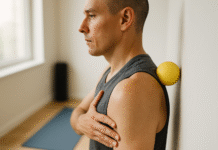
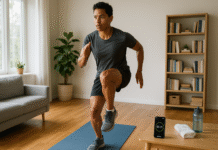

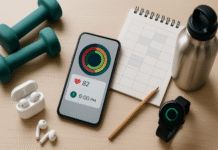


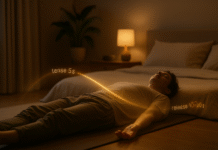
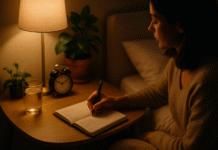
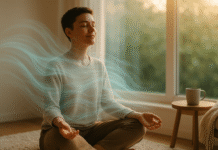

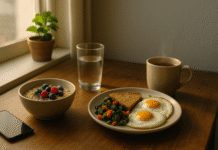







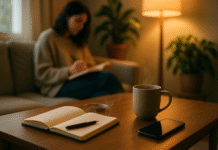
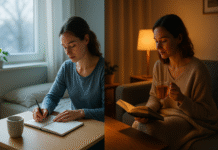

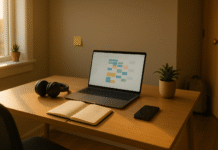
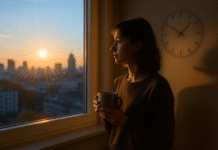

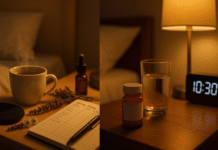
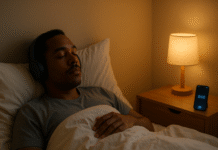

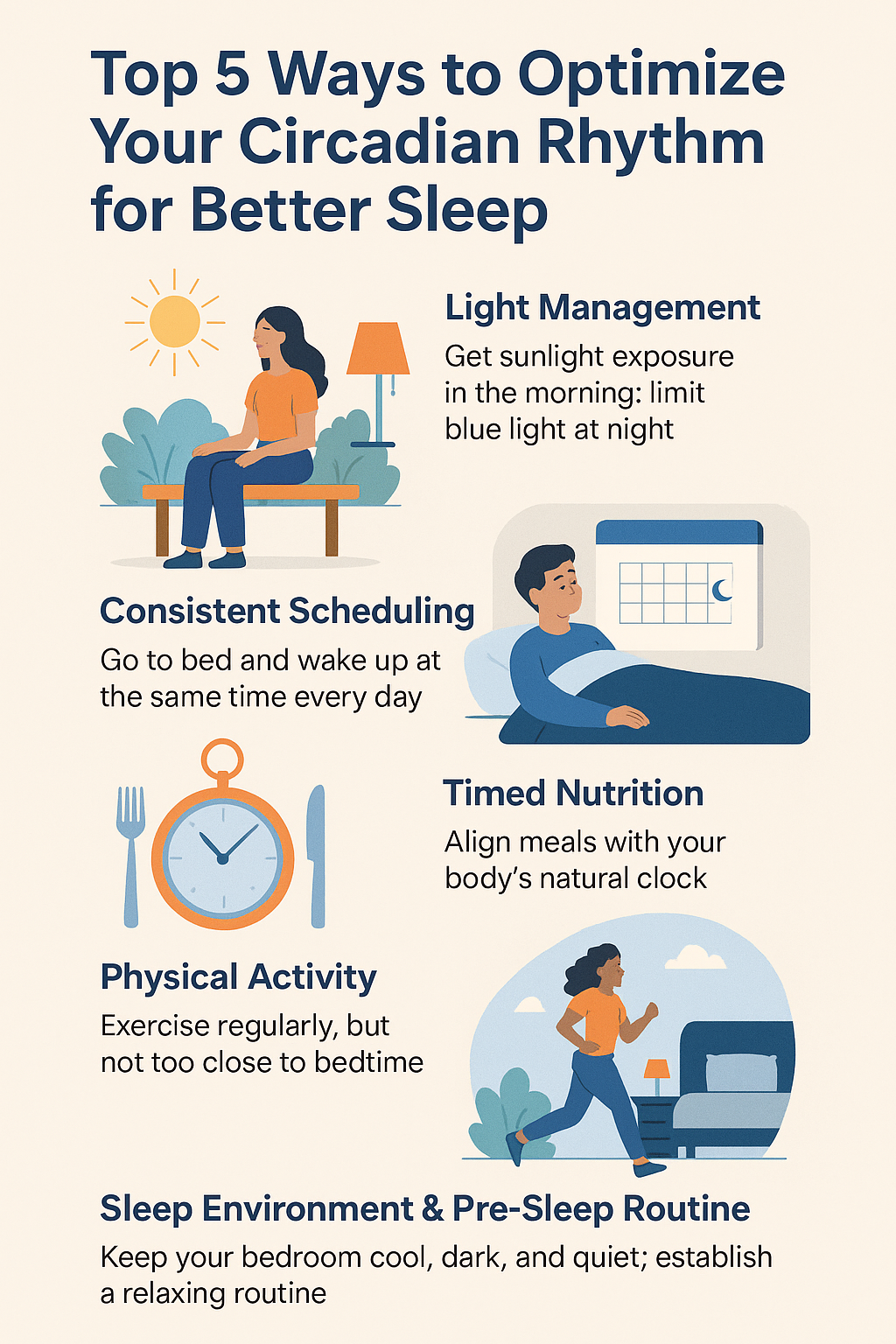

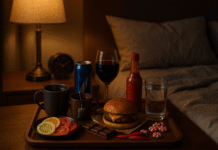

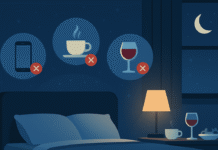
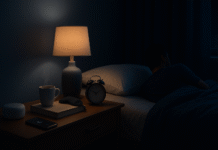
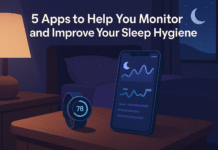
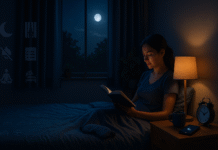
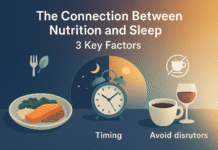
Hello There. I found your blog using msn. This is a really well written article.
I will be sure to bookmark it and return to read more of your
useful info. Thanks for the post. I’ll definitely comeback.
Terrific work! That is the type of information that are supposed to be shared around the internet.
Shame on the search engines for now not positioning this submit higher!
Come on over and discuss with my web site . Thanks =)
You actually make it seem so easy with your presentation but I find this matter to be actually something that I think I would never understand.
It seems too complex and very broad for me. I am looking forward for your
next post, I’ll try to get the hang of it!
Thanks , I have recently been looking for information about this subject for
a long time and yours is the greatest I have discovered till now.
However, what concerning the conclusion? Are you sure about the source?
Hello would you mind letting me know which hosting company you’re
using? I’ve loaded your blog in 3 different web browsers and I must say this blog loads a lot faster then most.
Can you recommend a good internet hosting provider at a reasonable price?
Many thanks, I appreciate it!
Hi every one, here every one is sharing such knowledge, so it’s
good to read this web site, and I used to go to see this weblog every day.
I feel that is one of the most vital info for me. And i am happy reading your article.
But should statement on few general things, The website taste is ideal, the articles is really great :
D. Good job, cheers
I am in fact thankful to the holder of this web site who has shared this
wonderful post at at this time.
I am really grateful to the owner of this web page who has shared this great paragraph at at this time.
Howdy! Do you use Twitter? I’d like to follow you
if that would be okay. I’m definitely enjoying your
blog and look forward to new posts.